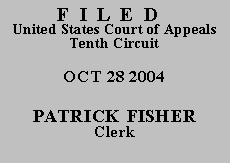

| JOHNNY MALONE,
v.
ERIC FRANKLIN; NICHOLS,
Counselor, James Crabtree
Correctional Center |
|
The magistrate judge concluded, and the district court agreed, that Mr. Malone had not adequately pleaded exhaustion of administrative remedies, nor supplied evidence of exhaustion pursuant to 42 U.S.C. § 1997e(a) and Steele v. Federal Bureau of Prisons, 355 F.3d 1204, 1211 (10th Cir. 2003). R. Doc. 8 & 10. Though both the magistrate judge and the district court concluded that a dismissal without prejudice was appropriate, the district court entered judgment in favor of the Defendants. R. Doc. 11. "We review de novo the district court's finding of failure to exhaust administrative remedies." Jernigan v. Stuchell, 304 F.3d 1030, 1032 (10th Cir. 2002).
A complaint "'that fails to allege the requisite exhaustion of remedies is tantamount to one that fails to state a claim upon which relief may be granted.'" Steele, 355 F.3d at 1210 (quoting Rivera v. Allin, 144 F.3d 719, 731 (11th Cir. 1998)). An inmate must not only adequately plead his claims, but must also attach copies of the "applicable administrative dispositions to the complaint." Id. (citations and internal quotations omitted).
On appeal, Mr. Malone argues that he has exhausted his claimthat he should be placed on the indigent list so that he could be provided personal hygiene products. Mr. Malone attached a copy of Defendant Franklin's grant of relief, which placed Malone on the indigent inmate list. Having been granted relief by the Warden pursuant to his grievance, he argues that further exhaustion was unnecessary in these circumstances. Aplt. Br. (Opening Statement at B). We agree.(1)
Under the Prison Litigation Reform Act, an inmate must exhaust administrative procedures regardless of whether the available remedies appear to be unable to provide the kind of remedy sought, Booth v. Churner, 532 U.S. 731, 741 (2001), or the suit involves "general circumstances or particular episodes." Porter v. Nussle, 534 U.S. 516, 532 (2002). In order to exhaust administrative procedures, the inmate must "go beyond the first step [and seek] intermediate or final administrative review after the prison authority denie[s] relief." Booth, 532 U.S. at 735; see also Jernigan, 304 F.3d at 1032 (stating that to exhaust administrative procedures, an inmate must begin the grievance process and see it to its conclusion); Wright v. Hollingsworth, 260 F.3d 357, 358 (5th Cir. 2001) (stating that the inmate must "pursue the grievance remedy to conclusion").
In this case, Mr. Malone requested to be classified as an indigent inmate; this relief was granted by Defendant Franklin on January 22, 2004. Aplt. Br. at 1, Ex. 3. When Mr. Malone's grievance was granted by Warden Franklin, he had exhausted his administrative remedies. The Warden having granted relief, we do not think that Mr. Malone was required to appeal or to institute a new grievance to obtain the same relief. See, e.g., Ross v. County of Bernalillo, 365 F.3d 1181, 1186-87 (10th Cir. 2004) (holding that an inmate was not required to proceed to the next stage of the grievance process because he was successful in the first stage, and the record failed to suggest "that there was any further relief whatsoever available" through prison grievance procedures). Therefore, because Mr. Malone had exhausted all available administrative procedures, the district court's dismissal without prejudice for lack of exhaustion is reversed.
We remind Mr. Malone that he must continue making partial payments until the entire balance of the appellate filing fee is paid.
REVERSED.
Entered for the Court
Paul J. Kelly, Jr.
Circuit Judge
*. This order and judgment is not binding precedent, except under the doctrines of law of the case, res judicata, and collateral estoppel. This court generally disfavors the citation of orders and judgments; nevertheless, an order and judgment may be cited under the terms and conditions of 10th Cir. R. 36.3.
2. After examining the briefs and the appellate record, this three-judge panel has determined unanimously that oral argument would not be of material assistance in the determination of this appeal. See Fed. R. App. P. 34(a); 10th Cir. R. 34.1(G). The cause is therefore ordered submitted without oral argument.
1. We reject Mr. Malone's claim that the federal courts in the Western District of Oklahoma are biased and prejudiced against pro se state inmates based upon (a) Tenth Circuit reversals, (b) misaddressing correspondence, and (c) denial of his initial request for in forma pauperis. Adverse rulings (even if erroneous) based upon facts properly before the court do not constitute bias, and the misaddressing of correspondence, while unfortunate, does not demonstrate partiality.